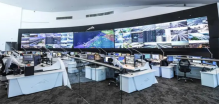The “self-quarantine safety protection” app, which is being developed by the country’s Ministry of Interior and Safety will enable quarantined individuals to remain in touch with caseworker. The app also ensures that those individuals are not breaking their quarantine through the use of GPS.
The app, which goes by the name Corona 100m, was already launched last month and had around 1 million downloads within the first 10 days of its launch. It uses government data and alerts its users when they are in a 100 meter radius of an infected person.
The South Korean government issued a statement which read that the app “allows users to conveniently avoid potentially dangerous locations without checking the travel histories of those infected”.
The government has also launched initiatives such as Coronamap and Coronaita in an effort to contain the virus. Corona map, for instance, highlights the travel histories of confirmed Coronavirus patients whereas Coronaita serves as a sort of search engine for information on the virus and the areas which have been impacted by it.
However, this has sparked a great deal of concerns amongst civilians due to the fact that it might undermine data privacy rights. However, it was found that patients are not explicitly identified however their genders and age range are disclosed and are also provided with a case number.
It has been speculated that the government of South Korea will take more measures to suppress the spread of the virus through a “smart city technology system”. This system aims to give health investigators the opportunity to check data which is provided by surveillance camera footage and credit card transactions of confirmed Coronavirus patients to recreate the routes they took, to ensure further prevention.
The system the Korea Centers of Disease Control and Prevention (KCDC) previously used entailed waiting for police investigators to provide such data, which was particularly time consuming. The new system which has been code eloped by the Ministry of Science and ICT, the KCDC and the Ministry of Land, Infrastructure and Transport permits access to a wide range of data pertaining to Coronavirus patients which can be immediately analyzed and used by health investigators.


















